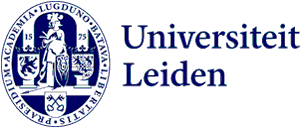
‘Human Rights and the World Cup Qatar’ debate: ‘World Cup football is never just about sport’
Various guests with a background in human rights, law, politics and international relations will be taking part in the ‘Human Rights and the World Cup Qatar’ debate on Friday 30 September. Royal Dutch Football Association (KNVB) Secretary-General and Leiden alumnus Gijs de Jong will be there to provide more information about the facts behind the 2022 World Cup.
World problems make themselves felt
Qatar is a young country that only gained its independence in 1971. Of the 2,634,234 inhabitants living there in 2017, only 20% are Qatari: the rest are migrant workers from Arabic and Asian countries. Since the World Cup was announced the population has increased by 750,000. ‘With a World Cup world problems suddenly make themselves felt,’ says Belhaj Chankour. ‘What is the position of all these migrant workers? How is the balance of power in the country? And what are the circumstances surrounding the construction work around the World Cup?’ These are all questions that they are dealing with at the KNVB – and that the speakers will discuss during the debate.
Such a large sporting event on a world stage is never just about football. Press freedom, human rights, the gas crisis: there are numerous topics that the participating countries have their own views on. Political interests are also at play. How can it be that a country like Qatar is allowed to host the World Cup at all. Amin Belhaj Chankour, Leiden alumnus in International Relations and Corporate Affairs Officer at KNVB, explains how that process is different now. ‘The 2026 World Cup will be held in Mexico, the United States and Canada. These countries had to show through a democratic process how they deal with human rights. You can now access this information publicly, just by going online. The media can also ask questions. This transparency is a real win.’
Make up your own mind
Information is important ‘The World Cup Qatar is controversial. There are all sorts of questions about it. We as the KNVB want to provide information that will help people make up their own minds about the World Cup,’ says Belhaj Chankour. The debate was suggested by another Leiden alumnus and KNVB employee: Bengt de Sitter. Taking part in the debate are Rick Lawson (Professor of European Law), Petra Bolster from the Federation of Dutch Trade Unions (FNV, which once took FIFA to court but now works with it), MP Gert-Jan Segers from ChristenUnie and Max Tuñón from the International Labour Organisation.
Join the debate
The debate on 30 September is open to all but is of particular interest to International Relations and European Studies students. Belhaj Chankour hopes students will ask the speakers critical questions: ‘Then you get a good debate going.’
Those present are invited to join in the debate and will have ample opportunity to interact with the speakers. Sign up now!
Text: Imme Visser
